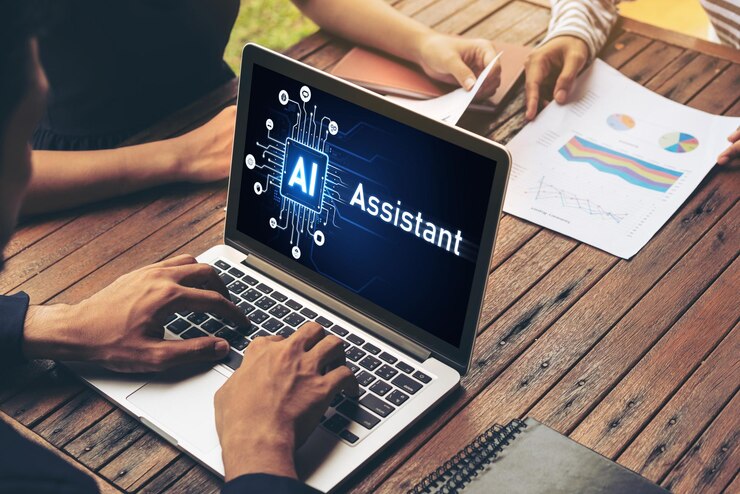Software testing is becoming smarter, and AI for software testing is leading the change. New tools are helping teams test applications faster, find bugs early, and deliver high-quality software with less effort. Artificial intelligence makes testing easier by automating repetitive tasks and improving accuracy. This blog introduces the top AI testing tools you should know about this year.:
- KaneAI
KaneAI by LambdTest is a powerful GenAI-native testing agent from LambdaTest, designed to simplify and accelerate web and mobile app testing using natural language. With KaneAI, you can write test cases in plain English—no coding required—making test automation accessible to QA teams, developers, and even non-technical team members.
KaneAI works across 5,000+ browser–device combinations, helping ensure your app performs consistently everywhere. It integrates deeply with HyperExecute, LambdaTest’s ultra-fast test execution platform, running tests up to 70% faster than traditional solutions.
KaneAI goes beyond just test creation. It automatically detects and heals broken tests when your app changes, minimizing maintenance. Its intelligent visual testing catches UI issues across devices and browsers, while API testing support ensures backend stability too.
You can also test on real iOS and Android devices, simulating real-world user interactions. KaneAI integrates seamlessly with tools like Jira, GitHub, and Slack, letting you launch and manage tests from within your existing workflow.
Whether you’re scaling testing or just getting started, KaneAI provides fast results, clear reports, and continuous support, making AI test automation smooth, smart, and scalable.
Key Features:
- Write and maintain tests using natural language, no coding required.
- Automatically fix tests when UI changes, reducing test flakiness and maintenance effort.
- KaneAI’s AI catches design issues across browsers and devices with detailed visual reports.
- Run tests up to 70% faster with smart orchestration and parallel execution.
- Validate behavior on actual Android and iOS devices for reliable, real-world test results.
- Connect with Jira, Slack, GitHub, and more to automate and manage workflows.
2. Testim: Easy Test Automation with AI
Testim is a powerful AI testing tool that makes automating tests for web applications reliable and straightforward. It uses artificial intelligence to create and maintain tests, reducing the need for constant manual updates. Testers can record actions, such as clicks or typing, and Testim converts these into stable test scripts.
Its AI analyzes the application’s interface to keep tests working even when the app changes. Testim fits well with CI/CD pipelines, supporting fast development cycles. The platform includes intuitive interfaces that support collaboration between users with technical understanding and those with limited technical knowledge.
Key Features:
- Smart locators use AI to identify elements, ensuring tests stay reliable despite application changes.
- Record-and-playback lets users create tests quickly without needing advanced coding skills.
- CI/CD integration enables continuous testing, keeping up with rapid development workflows.
- With an intuitive interface that everyone on the team can learn, Testim ensures diversity in test creation and management.
AI in Testim saves time and safeguards the stability of tests, truly required by any busy team. AI for software testing accelerates the automation of test processes while ensuring quality.
3. Testsigma: Testing Without Code
Testsigma is another cloud-based AI testing platform that lets anyone develop and run automated tests without the need to write any code. It works with natural language processing and allows testers to write test steps in plain English, which the platform then converts into scripts. This makes it ideal for teams with non-technical members or any technical expertise.
Testsigma’s AI suggests ways to improve tests and spots unnecessary ones, saving effort. It works for web, mobile, and API testing, covering all your needs. The tool also adjusts tests automatically when the application changes, reducing maintenance work.
Key Features:
- Natural language test creation lets users write tests in simple English, no coding required.
- AI-driven optimization suggests better test cases and removes redundant ones for efficiency.
- Cross-platform support tests web, mobile, and API applications in one tool.
- Auto-healing adapts tests to application updates, keeping them reliable with less effort.
Testsigma’s no-code approach makes AI in testing accessible to everyone, boosting team collaboration. Its cloud platform ensures easy access and scalability.
4. Functionize: Smart Testing with AI
Functionize is an AI testing tool that automates testing for web and mobile apps with minimal effort. Its AI understands test scenarios written in plain English and turns them into automated tests. The tool learns from application changes and automatically updates tests, saving time.
Functionize runs tests across multiple browsers and devices at once, ensuring broad coverage. Its clear dashboards show test results, helping teams spot issues fast. This tool is excellent for teams wanting fast, reliable testing without constant manual work.
Key Features:
- Natural language processing creates tests from plain English descriptions, making automation easier.
- Adaptive AI updates tests when the application changes, reducing the need for maintenance.
- Parallel testing runs tests on multiple browsers and devices for faster results.
- The system delivers precise insights that analyze test performance and tracking of the coverage range.
Functionize implements artificial intelligence technology to accelerate software testing, which suits agile development operations.
5. Katalon: All-in-One AI Testing
Katalon operates as a versatile AI testing software that provides a streamlined approach to testing web applications, together with mobile applications, API interfaces as well and desktop interfaces. Its AI creates test cases automatically by analyzing project requirements, saving time. Testers can record actions to build tests, even without coding skills, quickly. Katalon’s AI fixes tests when the app changes, preventing failures. It works with CI/CD tools, fitting into fast development cycles. The tool’s simple interface helps both technical and non-technical users work together effectively.
Key Features:
- AI-generated test cases create relevant tests automatically from project requirements.
- Record-and-playback builds tests quickly, requiring minimal coding knowledge.
- Self-healing adjusts tests to app changes, ensuring reliability with less effort.
- CI/CD integration supports continuous testing in agile development environments.
Katalon’s comprehensive approach makes AI in testing powerful yet easy to use, ideal for diverse teams. Its reporting tools help track testing progress.
6. ACCELQ: No-Code AI Automation
The ACCELQ is essentially an AI testing tool for cloud-based automated testing, requiring no user code to test web applications, mobile applications, or APIs. Testers can simply write tests in plain language, making it easier for everyone to use. The tool fixes tests automatically when the app updates, saving time. ACCELQ’s AI also finds redundant tests and suggests improvements, making testing more efficient. Its visual interface helps non-technical users create tests confidently.
Key Features:
- Codeless test creation uses simple language that is accessible to non-technical team members.
- Self-healing AI fixes tests when the app changes, reducing the need for manual updates.
- AI optimization removes redundant tests and suggests more efficient ones.
- Visual interface simplifies test design, encouraging collaboration across teams.
ACCELQ’s no-code platform makes AI in testing user-friendly, supporting fast and reliable testing. Its cloud setup ensures easy access for all.
7. Code Intelligence: AI for Secure Code
Code Intelligence is an AI testing tool that checks code for bugs and security issues before apps go live. Its AI creates random inputs to test the code, thoroughly finding hidden problems. The tool pinpoints exactly where issues are, making fixes faster. It works with CI/CD pipelines, automating code checks during development. Code Intelligence supports many programming languages, making it ideal for complex projects.
Key Features:
- AI-driven fuzz testing finds hidden bugs and vulnerabilities in codebases.
- Precise error reporting locates issues in specific code lines, speeding up fixes.
- CI/CD integration automates code testing in optimization cycles.
- Multi-language support for more efficient languages, for added flexibility.
Code Intelligence uses AI for software testing to ensure secure, high-quality code, ideal for developers. Its AI saves time by catching issues early.
8. Aqua Cloud: AI Test Management
Aqua Cloud is an AI testing tool that combines test management with automation for web and mobile apps. Its AI creates test cases from project requirements in simple language, saving effort. The tool analyzes test results to suggest improvements, keeping tests efficient. Aqua Cloud adjusts tests when the app changes, ensuring they stay reliable. It supports teams working in different languages, making collaboration easier.
Key Features:
- AI-generated test cases create tests from requirements in plain language.
- Test optimization analyzes results to improve test suites and efficiency.
- Auto-healing keeps tests stable by adapting to application updates.
- Multilingual support generates tests in various languages for global teams.
Aqua Cloud’s AI-driven management makes AI in testing simple and effective, perfect for diverse teams. Its API integrations streamline workflows.
9. AskUI: AI for Visual Testing
AskUI is an AI testing tool that simplifies visual and UI testing for web and desktop apps. Its AI lets testers describe tests in plain language, turning them into automated UI checks. The tool accurately recognises screen elements, ensuring stable tests. Askui tests apps across different devices and systems to ensure consistency. Its visual reports highlight UI issues clearly, speeding up fixes.
Key Features:
- Plain-language test creation automates UI tests without coding skills.
- AI component recognition identifies screen elements accurately for reliable tests.
- Cross-platform testing validates apps on various devices and systems.
- Visual reports clearly show UI issues, helping teams resolve them quickly.
AskUI’s focus on visuals makes AI for software testing effective for UI-heavy apps, saving time. It’s a simple approach that suits all skill levels. Let’s explore our final tool for code quality.
10. SonarQube: AI for Code Quality
SonarQube is an AI testing application that identifies bugs and detects performance issues as early as possible to ensure high-quality code. It is AI that inspects code in multiple languages and identifies problems before they are released. The tool predicts scalability issues, helping build strong apps. SonarQube works with CI/CD pipelines, automating code checks during development. Its dashboards show code health clearly, guiding you to ensure focus on key fixes.
Key Features:
- AI code analysis finds bugs and performance issues across multiple languages.
- Predictive analysis spots scalability problems, ensuring robust applications.
- CI/CD integration automates code reviews in fast development workflows.
- Clear dashboards show code health, helping teams prioritize fixes.
SonarQube’s AI-driven approach makes AI in testing essential for quality code, perfect for developers. Its insights improve software reliability.
Conclusion
AI testing tools are currently revolutionizing software testing speed and innovation at all levels. From LambdaTest’s easy automation to SonarQube’s code quality checks, the tools are meant to use AI to simplify testing in software development. They save time, reduce errors, and help deliver better apps. Whether you need no-code testing or secure code analysis, there’s a tool for you. Try one to see how AI in testing can transform your work. Which tool will you pick to boost your testing?




